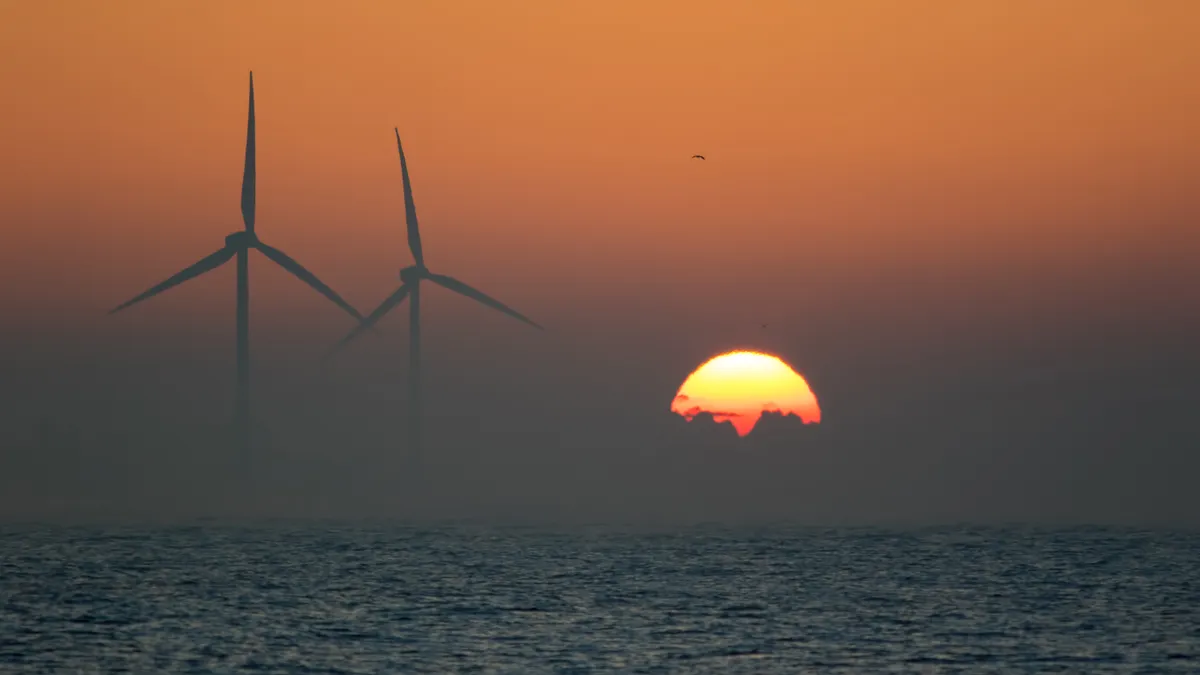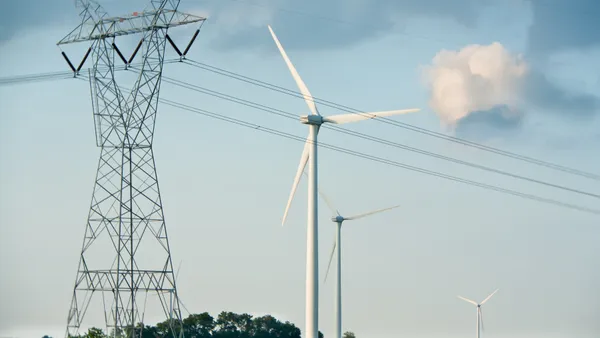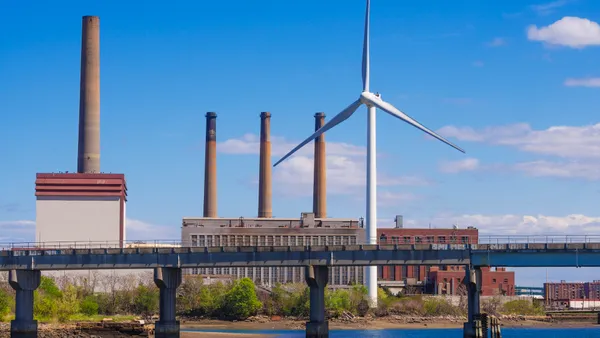Dive Brief:
- In a Friday court filing, the Department of the Interior said it intends to revoke the approved construction and operations plan, or COP, for US Wind’s 2.2 GW Maryland Offshore Wind project off the coast of Maryland and Delaware.
- The filing was made in the docket for a complaint filed in February by South Bethany property owner and attorney Edward Bintz, who alleged that the Biden administration’s approval of the COP violated the Coastal Zone Management Act.
- “Interior now intends to reevaluate under the Outer Continental Shelf Lands Act its decision to approve the COP and, as a result, will be moving no later than September 12 … for remand of that prior COP approval,” Interior said in its filing.
Dive Insight:
The filing came in the form of a motion to stay the case, with Interior arguing that if its motion is granted, “the agency action that Plaintiff challenges will be vacated, and thus his claims will be entirely moot. And even if Interior’s motion is denied, the agency’s reconsideration of the COP will likely result in significant changes that will impact the positions and arguments of the parties here.”
Interior noted that Maryland Offshore Wind’s COP is also being challenged in a complaint filed in U.S. District Court for the District of Maryland by the leadership of Ocean City, and said it plans to file its motion for a remand in that case.
“Though the Maryland court dismissed the differently pled [Coastal Zone Management Act] claim in that case, the operative complaint in the Maryland Action still alleges Interior’s COP approval was contrary to the [Outer Continental Shelf Lands Act], [Administrative Procedure Act], and Marine Mammal Protection Act,” Interior said.
Seeking a revocation of the project’s COP is the latest in a series of efforts from the Trump administration to cancel or delay offshore wind projects that received federal approval under the Biden administration and are under construction.
Interior issued a stop work order, also on Friday, to Revolution Wind – a 700-MW offshore wind farm close to being completed and set to supply energy to Rhode Island and Connecticut.
In April, the administration ordered Equinor to stop work on its 810-MW Empire Wind 1 wind energy project offshore New York. Equinor said the delay cost the company up to $50 million each week, and came close to having to terminate the project before New York Governor Kathy Hochul negotiated with the administration to allow work to resume.
Last week, the U.S. Department of Commerce opened a probe into “the effects on the national security of imports of wind turbines and their parts and components.” Capstone analysts said in a note that they expect the Commerce Department to ultimately apply tariffs “likely around 25%-50%, consistent with other Section 232 duties imposed by this administration.”
“Offshore wind certainly has taken a beating,” said Lauren Collins, a tax partner at Vinson & Elkins. “Both through the One Big Beautiful Bill Act, and recent news on offshore wind projects basically being shuttered even though they're almost done.”
Kat Burnham, Rhode Island policy lead at Advanced Energy United, said the Trump administration’s “escalating attacks on offshore wind are creating chaos in the energy sector. Pulling back approvals for projects that are already permitted and in some cases nearly built, undermines years of planning, billions of dollars in private investment, and thousands of jobs.”
According to the Bureau of Ocean Energy Management, Maryland Offshore Wind’s COP “includes up to 114 wind turbine generators, four offshore substations, a meteorological tower, and up to four offshore export cable corridors with subsea transmission cables making landfall in Sussex County, Delaware ... Two phases, known as MarWin and Momentum Wind, already have offshore renewable energy certificates from the State of Maryland.”
The 300-MW MarWin project is set to start delivering electricity this year, while the 800-MW Momentum Wind is set to start doing so in 2028.
















